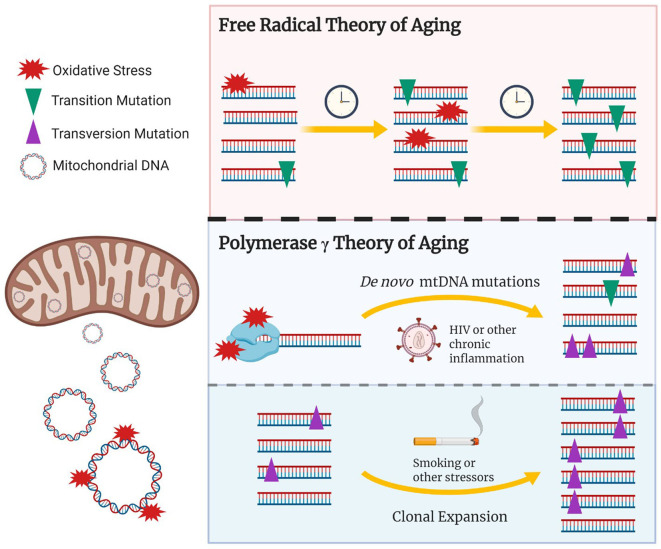Figure 1.
The updated role of oxidative damage and mtDNA polymerase γ in age-associated mtDNA mutations. The free radical theory of aging hypothesizes that oxidative damage to the mtDNA induces random de novo mtDNA mutations which gradually accumulate over time, potentially reaching pathological levels. Recent studies have shown that transition mtDNA mutations (purple triangles) rather than transversion mutations (green inverted triangles) gradually build up overtime and are amplified, via clonal expansion, to pathological levels. Given that transition mutations are generally associated with replication errors made by the mitochondrial polymerase γ, the age associated accumulation of mtDNA mutations could result from free radicals interacting with polymerase γ, potentially reducing its fidelity and/or inhibiting mtDNA replication. This would in turn lead to random de novo transition mutations and their subsequent clonal amplification. Conditions hypothesized to induce accelerated aging via oxidative damage/stress could include chronic infections such as HIV, chronic inflammatory conditions, or tobacco smoking. Stressors that induce mitochondrial biogenesis or cellular turnover, which could be mediated via oxidative stress, would in turn promote clonal expansion of existing damage. Created with BioRender.com.

